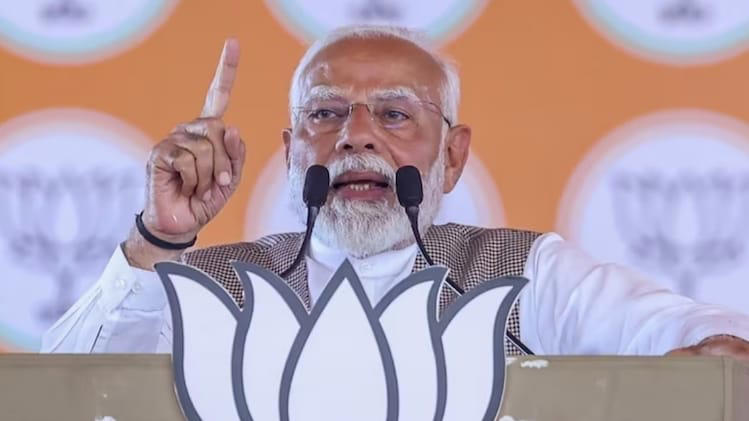
In its latest analysis, Bernstein predicts that if Narendra Modi is re-elected and the BJP retains power, there will be a short-term stock market rally leading up to the elections or in the week following the results. The brokerage firm also anticipates a potential breach of 23,000 on the Nifty index. However, Bernstein warns that profit booking may occur afterwards as the challenges of execution and valuations become apparent. The Lok Sabha elections will conclude on June 1, with the results expected on June 4.
According to Bernstein, if the BJP secures over 290 seats, there will be an immediate market rally followed by some profit booking in the short term. In this case, it predicts high single-digit or low double-digit returns for the Nifty index this year. If the BJP wins between 260 and 290 seats, there may be mild profit booking in the stock market in the near term, but still expects high single-digit market returns for this year. However, if the BJP wins between 240 and 260 seats, there could be moderate to heavy profit booking in the near term. Despite this, Bernstein still believes that high single-digit market returns for this year are likely. On the other hand, if the BJP wins less than 240 seats, Bernstein anticipates a resurgence of populism and heavy profit booking in the near term. In such a scenario, it suggests that the market may experience low or negligible returns for this year.
According to Bernstein, the sectors that will lead in the market are infrastructure, manufacturing, domestic cyclical, financials to some extent, and state-owned enterprises. On the other hand, consumer and IT sectors will lag behind. In terms of market performance, small and medium-sized companies may outperform large caps for a short period.
Bernstein also emphasized the importance of government involvement in facilitating organized capital expenditure. They believe that a return of the NDA (National Democratic Alliance) would be favorable for this, while a change in government could result in haphazard growth and a shorter upcycle with structural challenges for those involved in capital expenditure.
In contrast, a stronger opposition could lead to a more favorable environment for consumption in the near term. However, this may come with the downsides of high inflation and a deviation from fiscal discipline, according to Bernstein.
Addressing the employment problem is expected to take longer as the focus remains on manufacturing. However, a sudden change in government could directly address this issue through government job creation, while the slowdown in foreign direct investment and manufacturing initiatives may decelerate.